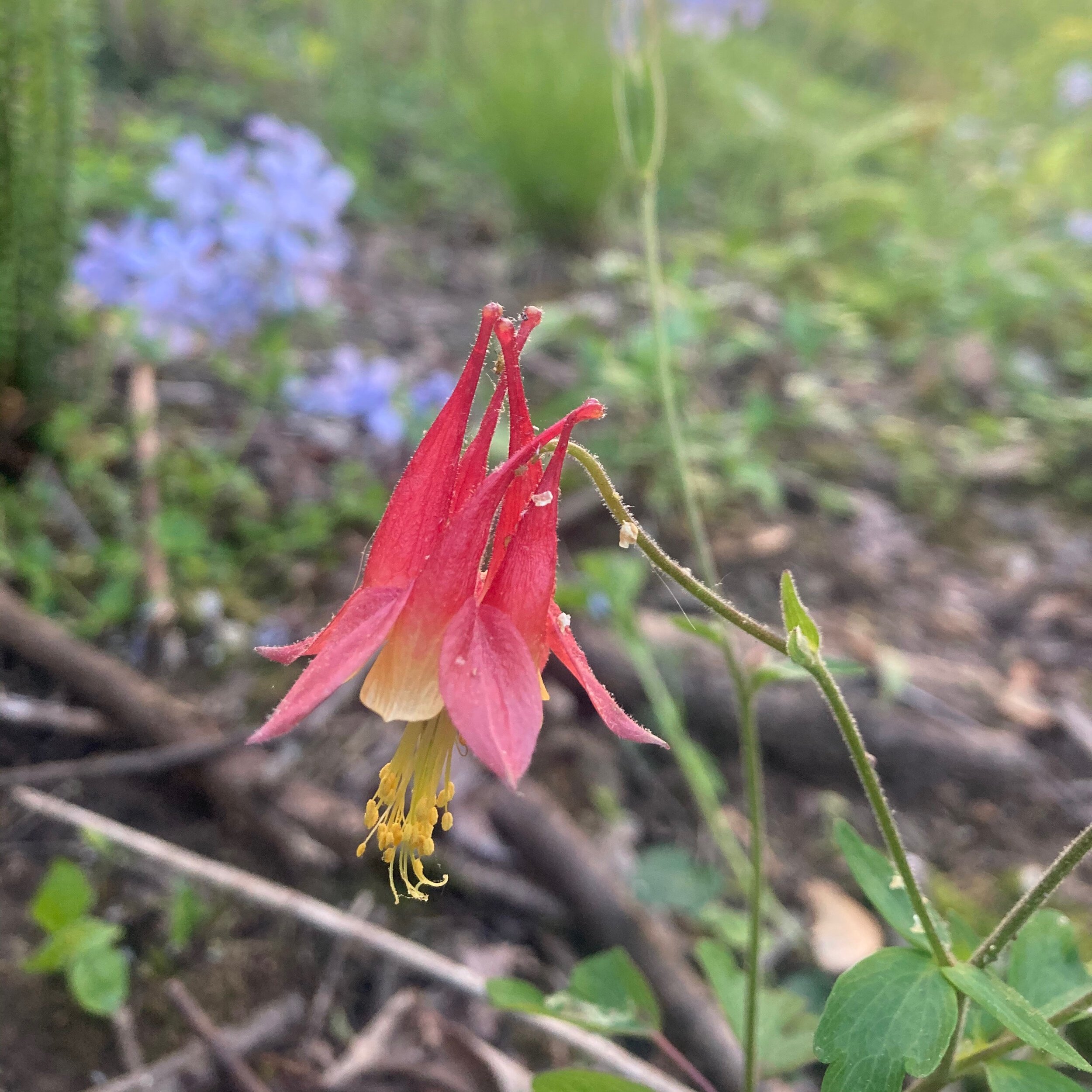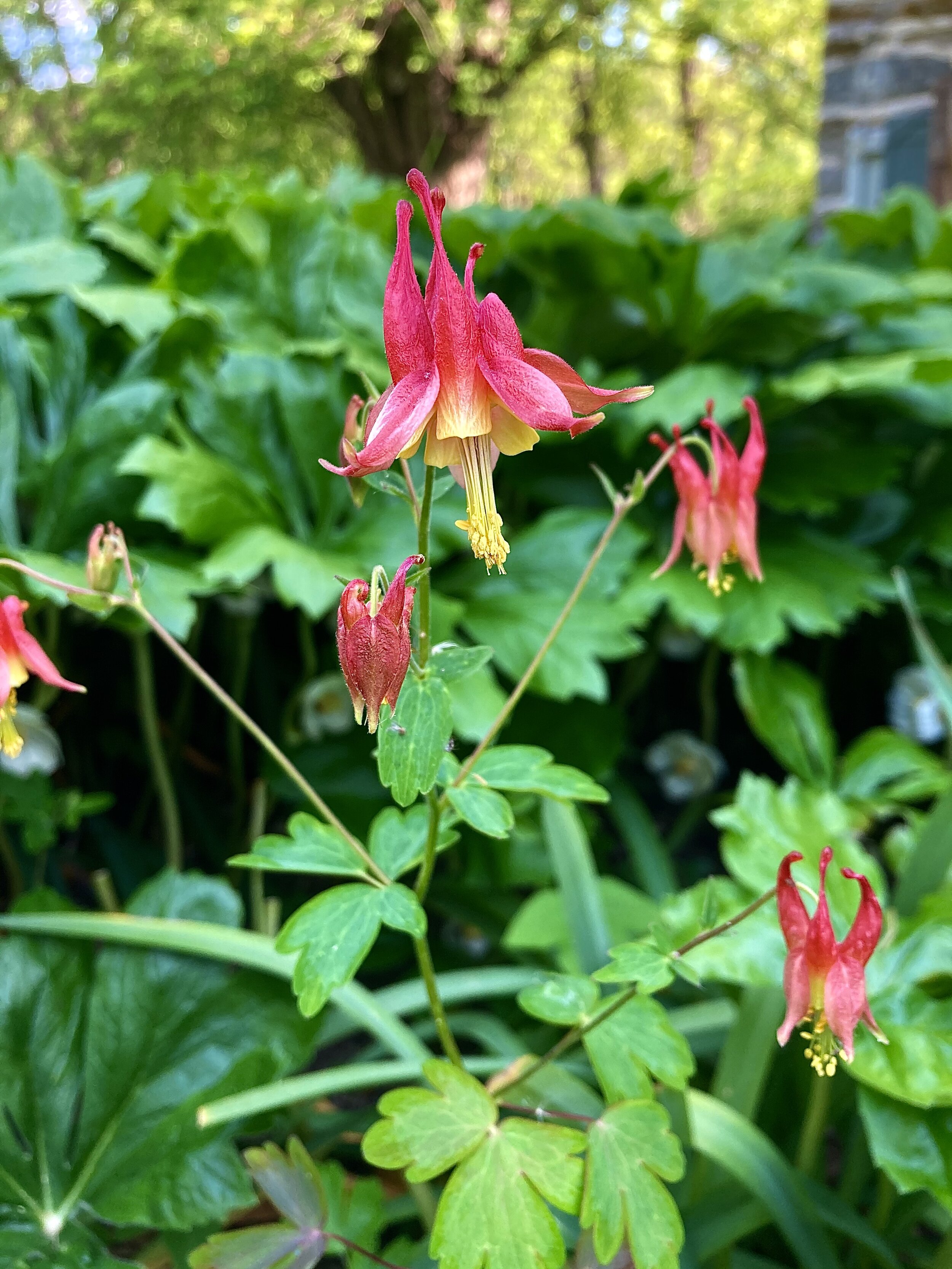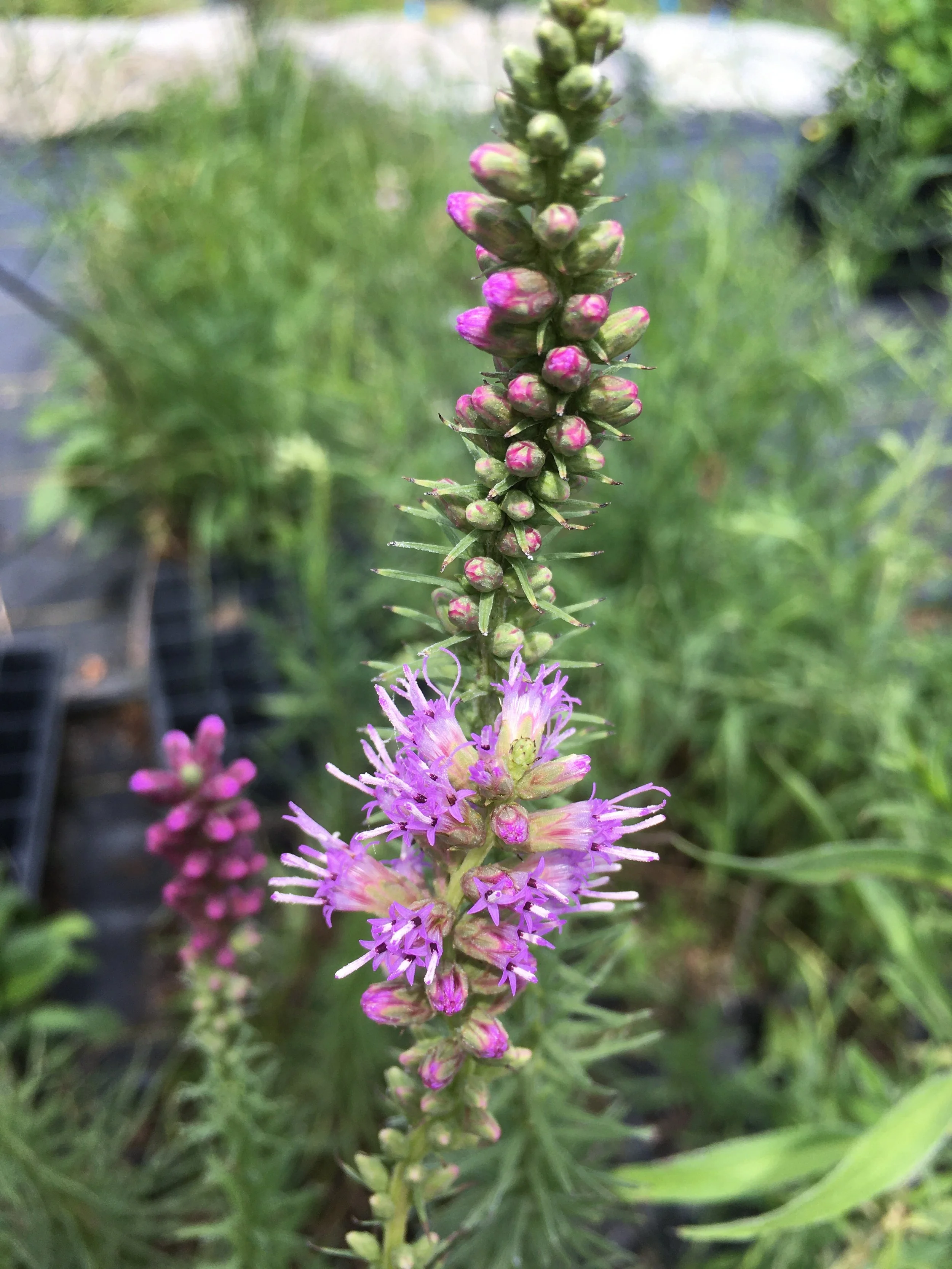 Image 1 of 5
Image 1 of 5

 Image 2 of 5
Image 2 of 5

 Image 3 of 5
Image 3 of 5

 Image 4 of 5
Image 4 of 5

 Image 5 of 5
Image 5 of 5






Asclepias incarnata (Rose Milkweed or Swamp Milkweed)
grows 4-5 ft. tall
prefers sun to part shade
medium to wet soil
pink blooms June-July
natural habitat: floodplains, river bottomland, swamps and wet meadows.
beneficial to bumble bees, solitary bees, butterflies/moths, wasps, beetles, and hummingbirds
host plant for larva (caterpillars) which benefit songbirds; host plant for monarch butterfly
likely resistant to black walnut toxicity (juglone)
deer resistant
companion plants: Eupatorium masculatum (Spotted Joe-pye weed), Echinacea purpurea (Purple Coneflower), Helenium (Sneezeweed)
grows 4-5 ft. tall
prefers sun to part shade
medium to wet soil
pink blooms June-July
natural habitat: floodplains, river bottomland, swamps and wet meadows.
beneficial to bumble bees, solitary bees, butterflies/moths, wasps, beetles, and hummingbirds
host plant for larva (caterpillars) which benefit songbirds; host plant for monarch butterfly
likely resistant to black walnut toxicity (juglone)
deer resistant
companion plants: Eupatorium masculatum (Spotted Joe-pye weed), Echinacea purpurea (Purple Coneflower), Helenium (Sneezeweed)
grows 4-5 ft. tall
prefers sun to part shade
medium to wet soil
pink blooms June-July
natural habitat: floodplains, river bottomland, swamps and wet meadows.
beneficial to bumble bees, solitary bees, butterflies/moths, wasps, beetles, and hummingbirds
host plant for larva (caterpillars) which benefit songbirds; host plant for monarch butterfly
likely resistant to black walnut toxicity (juglone)
deer resistant
companion plants: Eupatorium masculatum (Spotted Joe-pye weed), Echinacea purpurea (Purple Coneflower), Helenium (Sneezeweed)

















